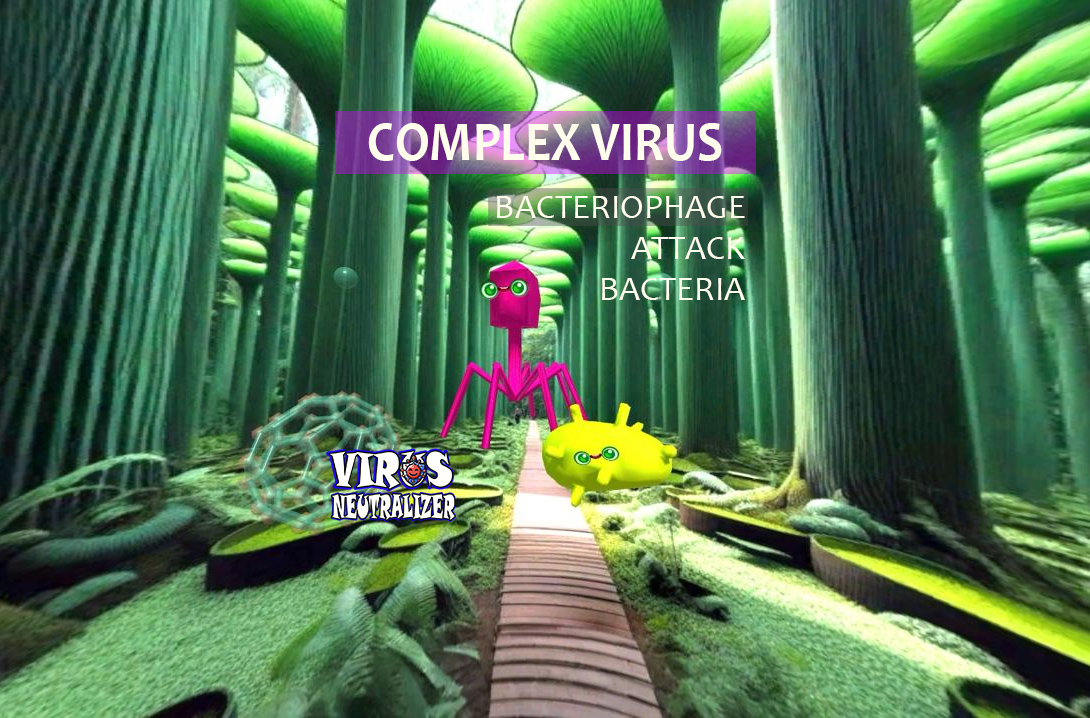Complex Viruses Unveiled: Bacteriophages in Science and Gaming
22 Nov 2024

Viruses with complex shapes, such as bacteriophages, are unique and complex microorganisms that can be depicted as enemies or research subjects in computer games, and play an important role in real life. Bacteriophages are viruses that infect and destroy bacterial cells. These viruses have a complex structure, including a head containing genetic material and a tail, which is used to attach to bacterial cells and inject their genetic material into them.
Main Features
One of the main features of bacteriophages is their ability to specifically attack certain bacteria. This makes them useful in medical and agricultural practices to combat bacterial infections. Bacteriophages can be easily distinguished by their complex morphology. They usually have an icosahedral head and a long tail, which may have several tail filaments or spikes used to attach to the surface of bacteria. Under an electron microscope, these viruses have a characteristic shape resembling a golf hole with a long stem.
Bacteriophages in Real Life
In real life, bacteriophages are used to treat a variety of bacterial infections. They can be effective against pathogenic bacteria such as Staphylococcus aureus, which causes skin infections, and Escherichia coli, which is responsible for food poisoning. In agriculture, bacteriophages can be used to combat bacterial infections in plants, such as bacterial canker and leaf spot. They can also be used to protect animals from bacterial diseases such as salmonellosis in birds and mastitis in cows.
Uses of Bacteriophages
A comprehensive approach is needed to combat bacteria infected with bacteriophages. Bacteriophages can be used as an alternative or supplement to antibiotics, especially in cases where bacteria are resistant to conventional antibiotics. The use of bacteriophages has several advantages, including specificity to the pathogen and minimal impact on the normal microflora of the body. This makes them ideal candidates for treating bacterial infections without destroying beneficial bacteria.
Conclusion
In addition to the use of bacteriophages, sanitation and hygiene play an important role. Regular hand washing, surface disinfection, and personal hygiene help prevent the spread of bacterial infections. In agriculture, infection control requires improving the conditions of animals and plants, vaccination, and the use of biological methods of pathogen control.
Related games
Related news
🦠 Virus Neutralizer — Become a microscopic hero! 🔬 Live ga...
In this science and entertainment broadcast, you will see how you can fight viruses, bacteria and fungi in the most unexpected places - from the kitchen to space - in a fun and effective way.
Read moreMulticellular fungi: benefits, threats and their reflection...
Multicellular fungi are a diverse group of organisms that play an important role in ecosystems, industry, and human life...
Read moreSingle-celled fungi: beneficial, pathogenic and their reflec...
Unicellular fungi are amazing organisms that combine the simplicity of their structure and the complexity of their inter...
Read more




